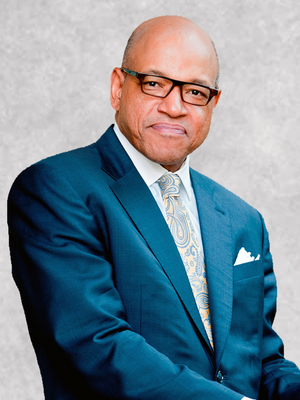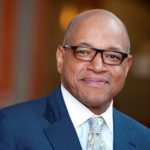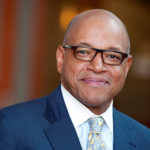From being shaped by the University to shaping it: Thomas ’78 GRD ’86 starts as newest trustee
Thomas offered his thoughts on how Yale shaped him and how he hopes to shape Yale as its newest trustee.

Yale News
After a competitive election for a seat on the Board of the Yale Corporation, the University’s highest governing body, David A. Thomas ’78 GRD ’86 arrives as its newest trustee filled with experience and enthusiasm.
In May, Thomas ran against Victor Ashe ’67, a former mayor of Knoxville, Tennessee, and ambassador to Poland, for the position. Ashe was Yale’s last petition candidate, as the Yale Board of Trustees ended the petition process this year the day after the vote. Thomas was nominated for the election by the Alumni Fellow Nominating Committee, which is made up of alumni representatives and Yale administrators. Thomas prevailed in the election, beating Ashe with 64 percent of the vote.
Thomas spoke to the News about how his experience as a Yale student, teacher and administrator has influenced him. Now, as he begins his six-year term as a trustee, he will in turn be able to influence the University.
“I understand academia from the ground floor all the way up,” he told the News, crediting the time he spent in New Haven with preparing him for a role on Yale’s Corporation.
Thomas earned his bachelor’s degree at the University in 1978 before returning to earn a master’s and a doctorate in philosophy in the 1980s. After finishing his studies, Thomas devoted himself to a career in academia, particularly in higher education.
Thomas served as dean of Georgetown University’s McDonough School of Business from 2011 to 2017 and has taught at both Wharton and Harvard Business School, where he held leadership roles, before accepting his current position as president of Morehouse College in Atlanta.
Even though it has been a few years since he has been in the Elm City, Thomas cherishes the time he spent in New Haven. When he started as an undergraduate student at the University, he wanted to be a lawyer, but he soon discovered a passion for behavioral analysis that led him elsewhere and ended up majoring in administrative science. Outside the classroom, Thomas was co-chair of the Black Student Alliance at Yale.
“At Yale, I became an intellectual,” Thomas said.
After completing his undergraduate studies as a member of Timothy Dwight College, Thomas moved to New York, where he earned a master’s degree in organizational psychology at Columbia in 1981. He then returned to New Haven to pursue a master’s degree and doctorate. in organizational behavior. Thomas said that his graduate school experience “taught [him] excellence.”
Thomas’ experience as a graduate student may well have inspired one of his main goals as a member of the Yale Corporation, he said.
In his role, Thomas wants to forge a deeper bond between the College and the University and tackle other important issues through decisions on how to allocate the University’s resources in the coming years.
While he lauded University President Peter Salovey for his agenda on diversity, equity and inclusion, Thomas emphasized that “it’s now a matter of making the hard choices that will advance that agenda.”
Thomas has written several articles and two books on topics such as organizational change, diversity and belonging. He has also consulted for Fortune 500 companies on the issues.
Salovey wrote to the News that he hopes Thomas’ “wealth of experience” in this department can help Yale advance these priorities.
Thomas believes one of the principal tasks of the Board must be to determine where to deploy Yale’s resources, both human and financial, through the next decade.
“We can’t do everything,” Thomas said. “But Yale can shape public discourse and change global dynamics.”
Despite the challenges the University faces amid a pandemic, Thomas believes that Yale is in a strong position.
“Financially, it’s as strong as it’s ever been,” he said. “And in the last decade, [the University] has elevated its stature in the world.”
Salovey praised Thomas for his “extensive record as an educator and a leader,” adding that he is “renowned for scholarship.” While the Corporation has not met in person since Thomas’ induction, Salovey said that Thomas’ “expertise and experience will inform and enrich the Board’s deliberations.”
There are 19 members on the Board of the Yale Corporation.









